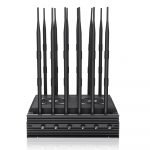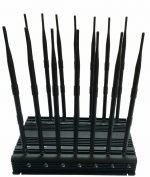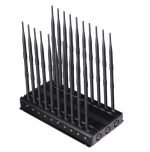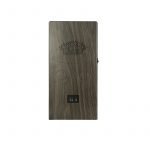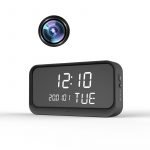
A cell phone signal blocker works like a wireless transmitter. A quarter-sized battery emits radio waves and interferes with them over a certain range. In the 1860s, physicist James Maxwell predicted the existence of radio waves. A few years later, Heinrich Hertz proved that rapid variations in electric currents would project radio waves into space. Cell phone signal blockers operate within a specified range of frequencies, which are regulated by governments.
High-end cell phone jammer
A high-end cell phone jammer can block more than one signal simultaneously. They are generally more expensive than simple single-channel blockers. The cheapest jammers usually work on batteries and can block only one signal. However, they may only be effective for short periods of time and only cover a certain area. These devices were originally designed for military use, but they are now found in many non-military applications.
Many businesses are beginning to use cell phone jammers in their establishments. One example is a movie theater, which frequently receives complaints about cell phone use. A cell phone jammer can help everyone stay focused and improve meeting spirit. The device will turn off phones with a switch and won’t allow them to reconnect. This device can be easily hidden in the back of a restaurant, theater, or courtroom, so that it is not a distraction.
Fiberglass insulation
A fiberglass insulation for cell phone blocker can help you cut down on the interference from wifi and cell signals. In addition, fiberglass also blocks sound from traveling through drywall. This article will help you make an informed decision regarding your insulation needs. Please note that some of the links in this article are affiliate links. To learn more about the benefits of fiberglass, click the links below. Fiberglass insulation for cell phone blocker benefits and costs will depend on the size and type of insulation you need.
Not all types of insulation are safe for use, and fiberglass is no exception. The material contains glass fibers, which emit harmful glass dust. Fiberglass insulation is also susceptible to mold growth, and it is notoriously heavy. Fiberglass insulation can also cause sagging around the contact point, which affects the overall thermal insulation of a home. Fiberglass insulation may also cause irritable skin and allergies, and it can even aggravate asthma and bronchitis.
Call labeling service
If you’re a business owner, you may be wondering if you need to use a call labeling service for your cell phone blocker. You may not realize it, but calling 100 consumers in one hour can result in a negative label. The problem with relying on your cell phone blocker to identify legitimate businesses is that it’s nearly impossible to determine which calls are from scammers and which are from legitimate businesses.
To get a legitimate label for your number, you need to establish ownership. It’s important to get this right, and you can’t achieve that unless you contact the key stakeholders in the calling ecosystem. These stakeholders include carriers, analytics engines, and developers of labeling apps and cell phone blockers. After all, your business’s reputation is on the line! But how do you make sure that your cell phone number is labeled the right way across all networks? Here’s what you need to do.
Unproven technology
If you’re looking for a cell phone blocker, the technology to do this is not exactly new. Using cell phones to talk to someone or to send text messages can be disruptive to others, and there are places where you should not be able to use your phone at all. However, many places have laws that ban cell phones, so you need to be very careful in those situations. If you want to avoid being harassed or even harmed by cell phone users, a signal jammer is your best option.
The technology is not entirely new. Companies are developing a device that sends calls to voicemail and blocks outgoing calls. But the FCC has not ruled on the legality of these devices, and the argument is that the phone still works. Some people have even used cell-phone alerters to let them know if there’s a cell signal nearby. These devices aren’t entirely illegal, but they can be quite expensive. Some devices are even designed to warn users to turn off their cell phones when they’re near a cell-phone signal.



